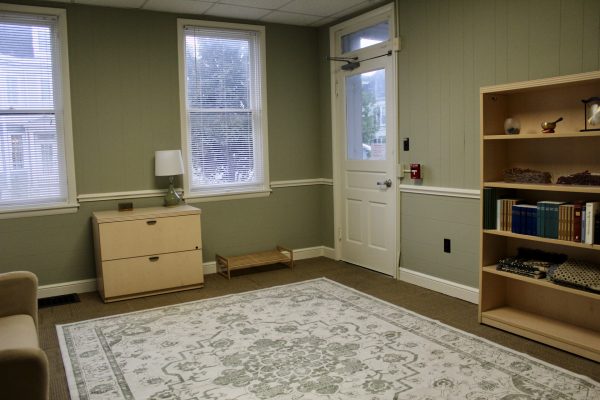Housing Lottery Changed Amidst Controversy
Amidst accusations of dishonesty on the part of students, the Department of Residence Life and Housing has chosen to change rules related to the Housing Selection process for 2014.
The housing process at Dickinson is based around the lottery system, which allocates certain time-slots to students based on seniority. These time slots are used online to request housing or other residential options for next year on certain days, with Seniors given the first day and First Years the last. Groups of people who wish to live together use the student with the lowest number to select their housing.
Previously, students from different grades were unable to live with one another without having penalties placed upon their selection process. Students in mixed-year groups were forced to select housing at the end of the oldest student’s selection day, regardless of the oldest student’s original time.
In 2013, however, the housing penalty was removed as part of Student Senate’s attempt at re-vitalizing the housing selection process.
The removal of the penalty caused difficulties with the 2013 Housing Selection process. According to the Department of Residence Life and Housing, students were found to have been “buying/selling lottery times,” with “rising seniors spreading out among groups of rising sophomores and juniors to get apartment style housing for those students.” Upperclassmen who helped secure better housing for underclassmen would then request room changes over the summer, allowing underclassmen to live in the desirable property, according to members of Residence Life and Housing.
The increase in younger students living in higher-demand residencies caused difficulties in last year’s housing selection process.
“The lottery is a little complicated and seniors can pull younger students into their selections, limiting it for juniors,” commented a Dickinson Junior on the popular website, College Prowler. Another student contributor added that, “Often times, as a result of the room draw system, people get screwed over. It is all chance, and no one has first dibs unless they miraculously get a good number that they use to choose first.”
In order to prevent this “gaming of the system” during this year’s housing process, the Department of Residence Life and Housing has stated that any room change requests received after the end of the Spring 2014 Room Selection Process “will be reviewed on a case-by-case basis.” According to officials in the department, if the student who makes a request for a change in housing after the selection process is the one who got the housing assignment for their roommate group of underclassmen, then the Residence Life and Housing Office “will process the change, remove the roommates from the housing assignment, and put them on the waitlist for assignment later in the summer.”
Another issue the Department of Residence Life and Housing is becoming more invested in this year is that of “double-dipping,” or students with on-campus living assignments living in off-campus housing. Safety is one concern regarding this practice, because, as stated by the Housing Department, “If you actually physically live off-campus, significant effort and time in a critical situation where every minute counts is going to be spent on accounting for your safety and whereabouts.” In addition, logistics issues arise when there are unoccupied rooms with furniture and space that could be used for other students, rather than Dickinson having to set up forced-triples.
The Housing Department does offer a limited number of exceptions to its four year residency requirement through the off-campus application process, but some students complain that they are not able to meet the demand for off-campus living. For some, having to live on campus is no big deal. A Dickinson alumnus wrote, “On a campus where nothing is more than 10 minutes away, living on campus all four years is a plus. While many students moan about having to stay on campus, the options for seniors are pretty good. Campus Life does their best to make everyone happy.”
Others students feel that it is unfair that their living options are limited and argue that the best solution to the problem of students shifting from on or off campus is for the Housing Department to open up more off-campus living opportunities to meet student demand. A recent petition to allow more people to live off-campus gained over 500 student signatures.
“I think that students are frustrated because they are being forced to live on campus in poor living conditions and are denied the privilege of living off-campus even when they abide by the code of conduct and are in good academic standing,” said Jess Swain ’15, whom started the petition. “The reality of it is that off-campus housing is much cheaper than our room and board, and it also provides a better quality of living. Until Dickinson can renovate their current dorms, students will prefer to live off-campus.”
A student commenter on College Prowler mirrored some of the same sentiments, by writing, “apartments that used to be owned by locals but are bought by Dickinson are part of housing. As for cost, it’s a complete rip-off. Yet the red tape and obnoxious process for applying for permission to live off-campus is awful, and unfortunate given the lack of quality college-owned properties.”
As of this year, the Department of Residence Life and Housing has not made any policy changes in favor of allowing more students to live off-campus, and instead has made it clear that there will be consequences for students who choose to trick or otherwise manipulate the system for their benefit. Students who have been found maintaining their primary residence off-campus without permission will be “referred to the Dean of Students Office.” Upper-class students who are caught attempting to sell spots in the Fall 2014 housing selection to underclassmen will also be punished for “violation of the Community Standards for dishonesty and deception,” according to the officials in the department.



